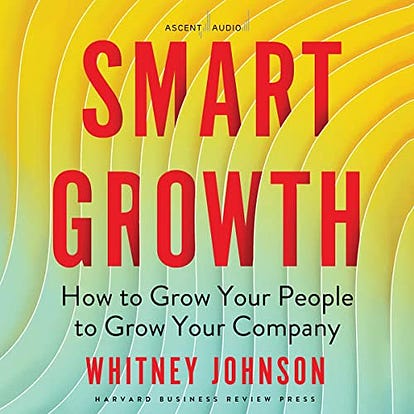From: Scott Osman <the100newsletter@substack.com>
Date: Tue, Jan 4, 2022 at 1:21 PM
Subject: Week 22.01 This is The Year to Live
To: <stevescott@techacq.com>
Last Saturday morning, the first morning of the new year, I was in the kitchen cleaning up from the night before. We had two friends over for dinner, but we like variety in our meals, so it felt like dinner for 12. It was a fun night with close friends that lasted until 2 am and included music, dancing, games, and lots of eating and drinking. And dishes. I am one of those people who actually likes doing the dishes. I enjoy the sound of the water, the smell of the soap, the feel of the sponge, the sight of clean dishes, and, I can admit, the taste of leftovers too good to throw away and too small to wrap or put into containers. It often reminds me of the words of my teacher, Srikumar Rao, who quotes Thich Nhat Hanh "The purpose of washing dishes is to wash the dishes." As I wrapped up the last dish, a final sweep with a drying towel, I thought, what would it mean if the purpose of living the year is to live the year? Washing the dishes to wash the dishes means that I am not focused on cleaning up, I am focusing on the action of washing, soaping, rinsing, of drying. If I were to live the year to live the year, that would mean focus on each day to live the day, each meeting to be in the meeting, each email to write the email. It would mean not thinking about my master plan, my 3-5 year goals, or even checking off my daily checklist. On the other hand, when I wash the dishes to wash the dishes, in the end, there is a clean sink and clean dishes. It is not without a plan or without intention. It starts with intention, to have clean dishes, and then becomes the act of cleaning the dishes for the sake of the act, not for the sake of having clean dishes. If I were to live this year to live this year, I can certainly have intentions for the year, and when I am doing the work of living the year, I would be present in that moment, doing that thing for the sake of doing that thing. I am intrigued by the idea of taking the simple idea of washing dishes to wash the dishes to living this year to live the year. In life and leadership, all we have is the moment we are in. Yes, we want to plan, we want to have direction, we may even want ambition. But in this new year, at this moment, all we have is the moment. If we can think about living the year to live the year, we can be more present for ourselves, the people we lead, and the people we love. Let's face it, no matter how much we may yearn for another time, this is the year we have, so this must be the year we live. Thinking about my New New Year's Resolutions (see week 21.52), I will be asking myself daily: Am I trying my best to live this year... to live this year? Smart Growth: How to Grow Your People to Grow Your Company by Whitney Johnson Growth is the goal. Helping people develop their potential—enabling them to articulate and become the self they want to be, are capable of being, and that best serves them and others in the short and long term—is what we as individuals and leaders strive toward. As individuals grow, so do organizations and societies. Growth is learning put into action—action that betters the world as we better ourselves and our small niches, both personal and professional, within it. Growth occurs when learning is internalized—when we try something new and invest the effort to move it from being something we do to something we are. pre-order now - releases Tue, Jan 11, 2022, Smart Growth: How to Grow Your People to Grow Your Company: Johnson, Whitney: 9781647821159: Amazon.com: Books USC 2022 Relevance Report Recognition of Sanyin Siang Relevance Built on Diversity and Relationships. "Her leadership evangelism is informed by the belief that everyone has an innate and instinctive gift, or superpower as she calls it. Context, community, and confidence can help us discover and hone those superpowers. And it's through the collective superpowers of a team that we can address today's complex challenges and realize unseen opportunities." She writes: at the end of the day, one of my favorite quotes from Jackie Robinson sums up relevance for me- "A life is not important except in the impact it has on other lives." Our relevance is measured in the moments of positive impact. And relevance is something we are all capable of, if we can turn the focus to one another, to the "we". READ IT HERE The Art of Following Up Graciously by Rebecca Zucker From HBR Management Tip of the Day: We've all been there: You email someone asking for a conversation, information, input, or an introduction ... and you get no response. It's frustrating, but you shouldn't jump to the conclusion that you're being ghosted. We're all juggling a lot these days, so here's how to reach out with a gentle nudge. Start with a compelling subject line. Avoid generic phrases like "Following up" or "Checking in" that are not only vague, they may also make the recipient feel bad for being slow to respond (even further delaying a reply). Instead, be more specific, for example, "Next steps on X project" or "Question on job application." Next, be mindful of your tone. Research shows emails that are slightly to moderately positive in tone have a 10 to 15% higher response rate than more neutral messages. So aim to be friendly and polite. Finally, be succinct and specific about your ask — and offer your recipient an easy out. This will give them an opportunity to save face and preserve the relationship. If you do all this and you still don't get a response, be judicious about following up again. You may need to cut your losses and move on. This tip is adapted from "How to Follow Up with Someone Who's Not Getting Back to You," by Rebecca Zucker Flashback to one year ago: Week 21.01 Check Your S Curves. Whitney Johnson's thinking is some of the most precise and profound that I have ever read. Don't get me wrong, there are many great thinkers in the 100 Coaches, and unlike my friends at Thinkers50, I am not brave enough to want to rank them. But Whitney's work is something that I find myself coming back to repeatedly, and the New Year is a great time to revisit and apply her thinking on S Curves to our lives. The S Curve is just a fact of life - it is the expression of birth, growth, and decay over time. Businesses have S Curves. The earth has S Curves. People have S Curves Quote of the week from Frank Leibowitz "I really think that musicians, probably musicians and cooks, are responsible for the most pleasure in human life." (from her Netflix show Pretend It's A City) And, as always, thank you, Marshall, for making all of this possible. With love and gratitude Scott If you liked this post from The 100 Newsletter, why not share it? |









No comments:
Post a Comment